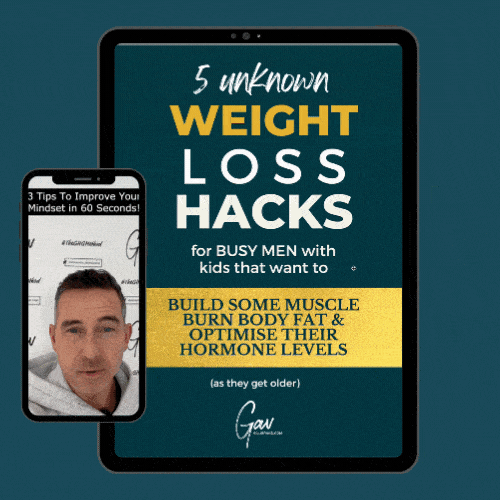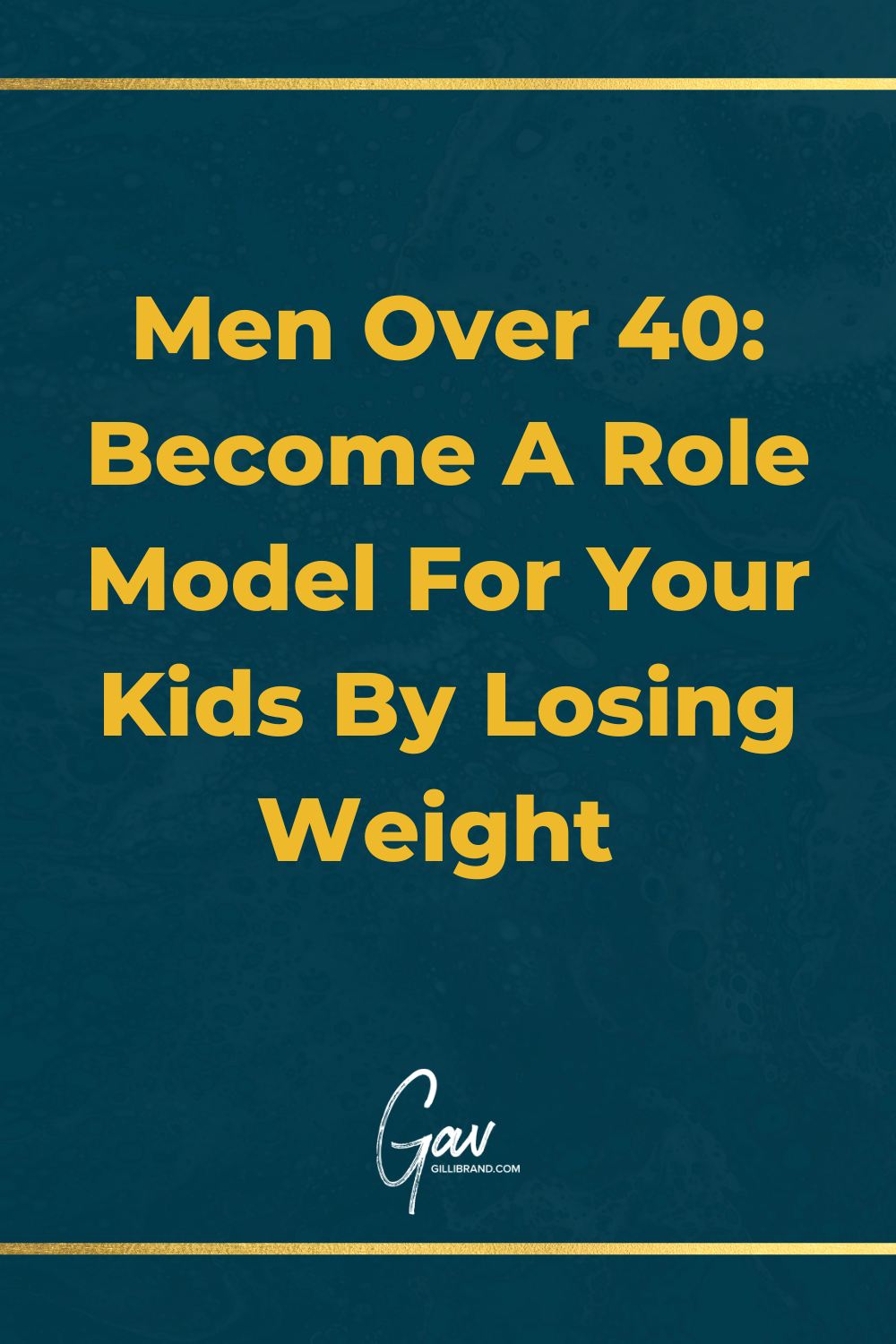
Discover effective weight loss strategies for men over 40 and become a role model for your kids with this comprehensive guide.
Weight Loss for Men Over 40: Becoming a Role Model for Your Kids
Many men over 40 struggle with weight loss. This can be due to a variety of factors, including a slower metabolism, hormonal changes, a decrease in physical activity, and poor dietary habits. However, it’s important for men to prioritize their health and make positive changes for themselves and their families. By becoming a role model for your kids, you can inspire them to lead healthy lives and set a positive example for generations to come.
Understanding the Challenges of Weight Loss for Men Over 40 to Become Role Model for Kids
Slowing Metabolism and Its Impact on Weight Loss
As men age, their metabolism naturally slows down. This means that they burn fewer calories at rest and during physical activity. While this can make weight loss more difficult, there are ways to combat this issue. For example, men over 40 can incorporate high-intensity interval training (HIIT) into their exercise routine. HIIT has been shown to increase metabolism and burn more calories in a shorter amount of time compared to steady-state cardio.
In addition to exercise, men over 40 can also adjust their diet to support their metabolism. Eating smaller, more frequent meals throughout the day can help keep the metabolism active and prevent it from slowing down. Additionally, incorporating metabolism-boosting foods like chili peppers, green tea, and whole grains can also be beneficial.
Hormonal Changes and Their Effects on Body Composition
Another challenge that many men over 40 face is hormonal changes, particularly a decrease in testosterone. This can lead to a decrease in muscle mass and an increase in body fat. However, by implementing a strength training routine, men can work to maintain muscle mass and increase their metabolism. I have created a method that I call it “The “GHG” Method”. You can find more helpful information about this method in my book that I wrote based on my personal experience and long-long years of work with my clients.
Strength training not only helps to build muscle, but it also helps to increase bone density, improve balance and coordination, and reduce the risk of injury. By incorporating exercises like squats, deadlifts, and bench presses into their routine, men over 40 can see significant improvements in their body composition and overall health.
The Importance of a Balanced Diet and Exercise
While hormonal changes and a slower metabolism can make weight loss more difficult, it’s important to remember that a balanced diet and regular exercise are the most important factors in achieving and maintaining a healthy weight. By focusing on whole, nutrient-dense foods and engaging in regular physical activity, men over 40 can improve their overall health and achieve their weight loss goals.
It’s also important to note that weight loss shouldn’t be the only goal. Men over 40 should also focus on improving their overall health, including reducing their risk of chronic diseases like heart disease and diabetes. This can be achieved through a combination of healthy eating habits, regular exercise, and stress management techniques like meditation or yoga.
In conclusion, while weight loss can be more challenging for men over 40, it’s not impossible. By understanding the impact of a slowing metabolism and hormonal changes, and by implementing a balanced diet and exercise routine, men can achieve their weight loss goals and improve their overall health and well-being.
Setting Realistic Weight Loss Goals
Determining Your Ideal Weight
The first step in setting realistic weight loss goals is determining your ideal weight. This can be done by calculating your body mass index (BMI) or consulting with a healthcare professional. BMI is a measure of body fat based on height and weight that applies to adult men and women. It’s important to keep in mind that BMI is not a perfect measurement and should be used in conjunction with other factors, such as waist circumference and overall health, to determine your ideal weight.
Consulting with a healthcare professional, such as a registered dietitian or primary care physician, can also provide valuable insight into determining your ideal weight. They can take into account factors such as age, gender, muscle mass, and medical history to provide a more personalized recommendation.
Creating a Sustainable Weight Loss Plan
To achieve lasting weight loss, it’s important to create a sustainable plan that fits into your lifestyle. This may include incorporating healthier food choices, increasing physical activity, and setting achievable goals. When it comes to food choices, it’s important to focus on whole, nutrient-dense foods such as fruits, vegetables, lean proteins, and whole grains. These foods provide the necessary nutrients for optimal health and can help keep you feeling full and satisfied.
In addition to making healthier food choices, increasing physical activity is also an important component of a sustainable weight loss plan. This can include activities such as walking, jogging, swimming, or strength training. It’s important to find activities that you enjoy and can realistically incorporate into your daily routine. When you sit back and decide to write a plan, consider adding these daily supplements to the part of your routine.
Setting achievable goals is also crucial for creating a sustainable weight loss plan. This can include setting small, attainable goals such as drinking more water or taking the stairs instead of the elevator. These small goals can add up over time and help build momentum towards larger goals.
Tracking Your Progress and Adjusting Your Goals
Tracking your progress is an important part of achieving your weight loss goals. This can be done by keeping a food and exercise diary, taking progress pictures, or monitoring your weight on a regular basis. By tracking your progress, you can identify areas where you may need to make adjustments and celebrate your successes.
It’s also important to adjust your goals as you progress, to ensure that they remain challenging but attainable. As you lose weight and become more physically fit, you may find that your goals need to be adjusted to continue to challenge you and help you reach your ultimate goal.
Remember, setting realistic weight loss goals is an important part of achieving a healthy body composition and positive change for your life. By determining your ideal weight, creating a sustainable weight loss plan, and tracking your progress, you can achieve your weight loss goals and maintain a healthy lifestyle for years to come.
Implementing a Healthy Diet for Men Over 40 is a Good Way to Become Role Model to Kids
Essential Nutrients for Optimal Health
A healthy diet for men over 40 should be rich in essential nutrients, including protein, fiber, healthy fats, and antioxidants. These nutrients can help to boost metabolism, reduce inflammation, and promote overall health.
Protein is especially important for men over 40, as it helps to maintain muscle mass and prevent age-related muscle loss. Good sources of protein include lean meats, fish, eggs, beans, and nuts.
Fiber is also important, as it can help to reduce the risk of heart disease, diabetes, and certain types of cancer. Good sources of fiber include fruits, vegetables, whole grains, and legumes.
Healthy fats, such as those found in avocados, nuts, and olive oil, can help to reduce inflammation and improve heart health. Antioxidants, found in colorful fruits and vegetables, can help to protect against cell damage and reduce the risk of chronic diseases.
Portion Control and Mindful Eating
Portion control and mindful eating are important for achieving and maintaining a healthy weight. By listening to your body’s hunger cues and paying attention to portion sizes, you can avoid overeating and make healthier food choices.
One way to practice mindful eating is to eat slowly and savor each bite. This can help you to feel more satisfied with smaller portions and prevent overeating. Additionally, paying attention to the colors, textures, and flavors of your food can help you to appreciate your meal and avoid mindless snacking.
Meal Planning and Preparation Tips
Meal planning and preparation can help to ensure that you have healthy options readily available, even on busy days. This may include prepping meals in advance, stocking up on healthy snacks, and planning ahead for meals out.
When planning your meals, aim to include a variety of nutrient-dense foods, such as lean proteins, whole grains, and colorful fruits and vegetables. Consider batch cooking on the weekends to have healthy meals ready to go throughout the week. And don’t forget to pack healthy snacks, such as cut-up veggies or a piece of fruit, to keep you fueled and satisfied throughout the day.
When eating out, look for menu items that include lean proteins, vegetables, and whole grains. Don’t be afraid to ask for modifications, such as dressing on the side or steamed vegetables instead of fries. And remember, it’s okay to indulge occasionally, just be mindful of portion sizes and enjoy your meal!
Incorporating Exercise into Your Daily Routine as a Part of Becoming Role Model to Kids
Regular exercise is essential for maintaining good health and overall well-being. That’s how you are becoming role model for your kids. However, finding the time and motivation to exercise can be challenging, especially for busy adults. One way to make exercise a part of your daily routine is to incorporate it into your daily activities. This can include taking the stairs instead of the elevator, walking or biking to work, or doing a quick workout during your lunch break.
The Benefits of Cardiovascular Exercise
Cardiovascular exercise, also known as aerobic exercise, is an excellent way to improve heart health and increase endurance. It involves activities that get your heart rate up, such as running, cycling, or swimming. Regular cardiovascular exercise can also help to reduce the risk of chronic diseases such as heart disease, diabetes, and obesity.
In addition to its physical benefits, cardiovascular exercise can also have a positive impact on mental health. It can help to reduce stress, anxiety, and depression, and improve overall mood and cognitive function.
Men over 40 should aim for at least 150 minutes of moderate-intensity cardiovascular exercise per week, along with regular strength training. This is considered to be one of the reasons to go to the gym. This can help to maintain a healthy weight, reduce the risk of chronic diseases, and improve overall quality of life.
The Importance of Strength Training for Men Over 40
Strength training, also known as resistance training, is particularly important for men over 40. As we age, we naturally lose muscle mass and bone density, which can lead to a number of health problems. Strength training can help to counteract these effects by increasing muscle mass, improving bone density, and boosting metabolism.
Strength training can also help to reduce the risk of injury and improve overall physical performance. In order to lose 20 lbs in a month you should aim for at least 2 strength training sessions per week, targeting major muscle groups such as the chest, back, legs, and arms.
Flexibility and Balance Exercises for Overall Fitness
Flexibility and balance exercises are also important for overall fitness and injury prevention. These types of exercises can help to improve range of motion, reduce the risk of falls, and improve overall stability.
Yoga, Pilates, and other forms of low-impact exercise that focus on stretching and balance are excellent options for improving flexibility and balance. These exercises can also help to reduce stress and improve overall mental health.
Overall, incorporating a variety of different types of exercise into your daily routine can have numerous benefits for your physical and mental health. Whether you prefer cardiovascular exercise, strength training, or flexibility and balance exercises, finding ways to make exercise a part of your daily routine is essential for maintaining good health and overall well-being.
Now You Can Be Role Model to Your Kids!
Overall, weight loss for men over 40 can be challenging, but it’s important for their overall health and well-being. By setting realistic goals, implementing a healthy diet and exercise routine, and becoming a role model for their kids, men can achieve lasting weight loss and improve their overall quality of life.
Hey there, I’m Gav!
I specialize in fat loss, body composition, and conditioning and have over 20 years of experience as a coach in the health and fitness industry. I will help you to become role model to your kids.
You deserve high-level support, which is why I’m willing to hop on a quick, 15-min Body Diagnostics Call with you. On this call, we’ll evaluate the EXACT cause of your weight plateau and I will give you a very specific, personalised plan for you to implement straight away to help you lose weight and recover or optimise your sexual performance as well.




